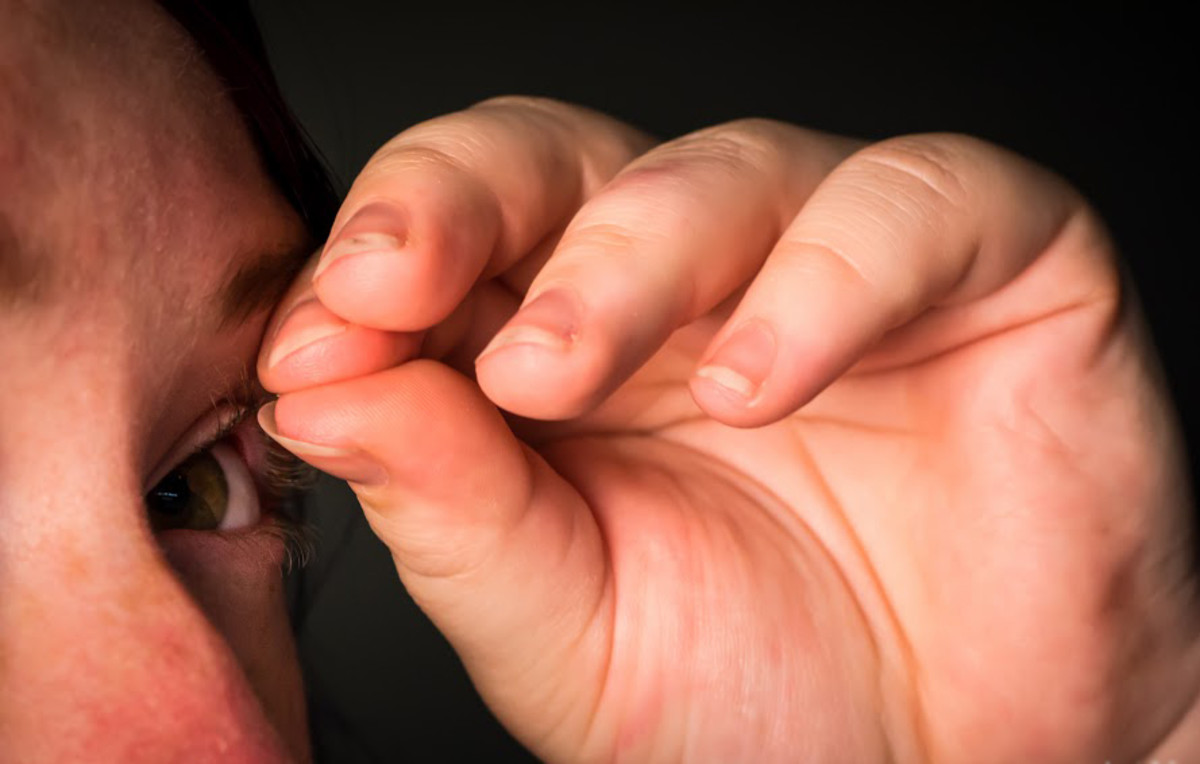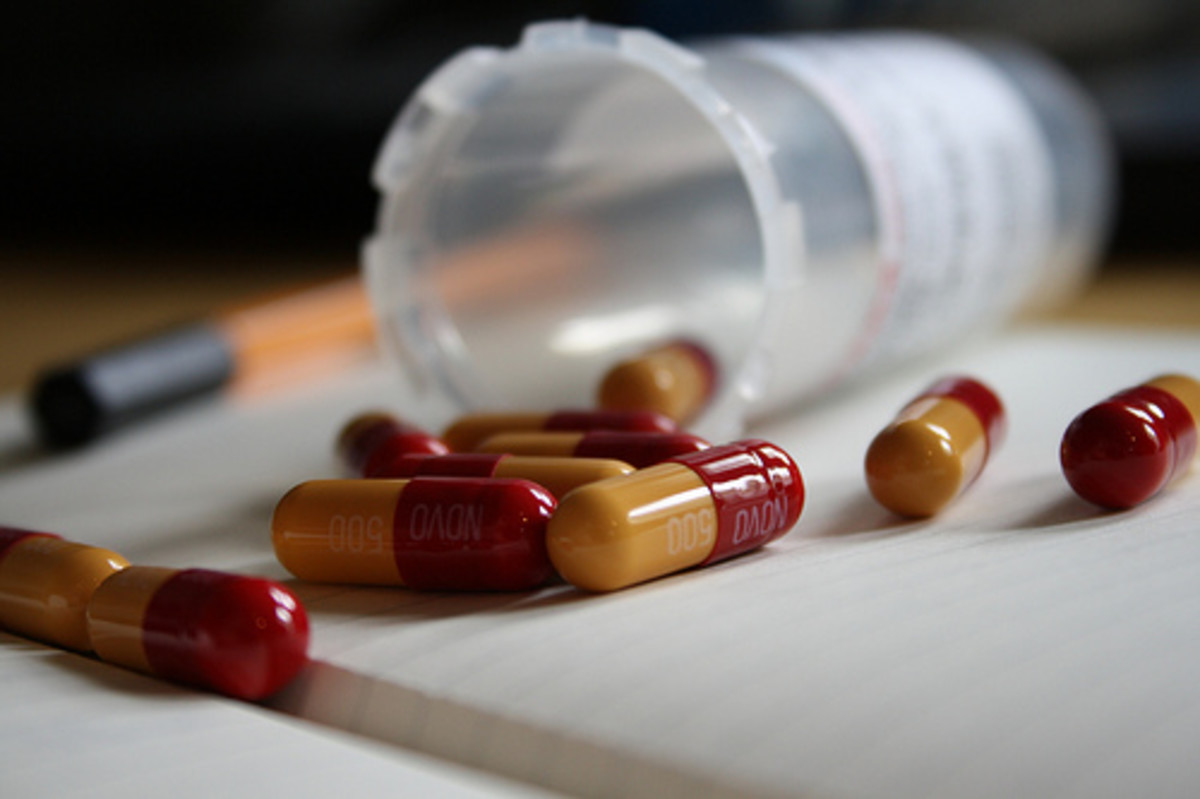- HubPages»
- Health»
- Mental Health»
- Clinical Depression
Defeating Postpartum Mood Disorders
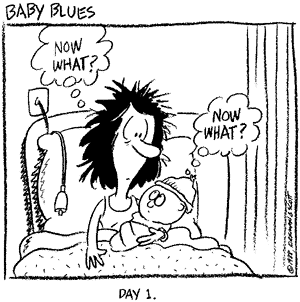
In the United States, alone, approximately 1.3 million women are diagnosed annually with some form of PPMD (Postpartum Mood Disorder). Not every woman's symptoms are the same, though. For this reason, PPMD is divided into a few different categories: Postpartum Blues (PPB), Postpartum OCD (PPOCD), Postpartum Anxiety (PPA), Postpartum Depression (PPD), and Postpartum Psychosis (PPP).
In order to know exactly which category a mother falls under, it is best for her to have a proper diagnosis done by a professional. If you or somebody you know feel you are having any of the symptoms discussed within this article, please do not hesitate to reach out for help. Having PPMD is not abnormal; it is very common for new mothers to experience personality changes. Their bodies have gone through many hormonal and chemical changes, which can often result in mental imbalances. The good news is, there is plenty of help and resources available, and with the proper diagnosis it can usually become a problem quickly addressed.
A Proper Diagnosis
PPMD is very real, no matter how extreme it may or may not appear to be. Almost all pregnant women experience it to at least a small degree. The two most popular categories are Postpartum Blues and Postpartum Depression. However, often times women are found self-diagnosing themselves, which can be very dangerous for a few reasons:
1) They could misdiagnose themselves--i.e., a mother could say she has Postpartum Depression when in fact she is experiencing Postpartum Anxiety. PPA could require a completely different line of treatment than PPD. 2) She needs to see a doctor and receive a professional diagnosis in order to have the proper treatment to help her cope. Without proper treatment, there is a chance that her condition could only grow worse. 3) Some, but not all, women experience typical mood swings and call them PPMD. The more times people misdiagnose themselves, the less serious the claimed disorder becomes. The less serious it becomes, the more others don't take that disorder seriously (there are some who believe that PPMD is just an excuse women use for being moody). Finally, the more people who think PPMD is an excuse, the less women who truly suffer from it receive the support and attention they truly need.
Not every woman is going to feel all warning signs listed below, while others could feel more.

Postpartum Blues (PPB)
Nicknamed Baby Blues, this is the most common and least severe level of depression for new mommies. Symptoms include:
Mood Swings
Anxiety
Sadness
Irritability
Crying
Decreased Concentration
Trouble Sleeping
Although the symptoms with Baby Blues are similar to the preceding levels of mood disorders, the difference is how long the symptoms last. If a mother is feeling nothing more than the Baby Blues, her feelings should begin to regulate within a couple weeks of the baby's birth.
Postpartum OCD (PPOCD)
PPOCD is probably the least heard of disorder, but is still just as real as the others. Symptoms include:
Obsessive/Intrusive/Repetitive Thoughts
Obsessive/Repetitive/Upsetting Images of Baby
Compulsive Behavior
Sense of Horror
Fear of being left alone with Baby
Excessive Vigilance in protecting Baby
Much like most other PPMD disorders, mothers with Postpartum OCD are not likely to act on their thoughts and feelings. They are more aware than anyone else that their thoughts are abnormal, and simply want relief from them.
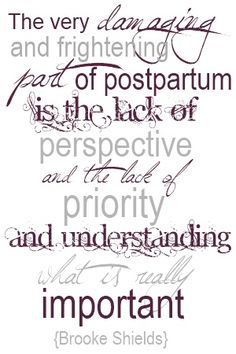
Postpartum Anxiety (PPA)
At this point, you may begin to see repetitive signs for each disorder. Many women can experience more than one disorder, while others could only exhibit a few signs from one. Also, each disorder, when given enough time to fester and grow stronger, can lead to new PPMD disorders. For example, Postpartum Anxiety, if left untreated, could easily cause depression in a woman. Before she knows it, she is now feeling the symptoms of Postpartum Depression as well.
Nervous Energy
Uncontrollable Worry
Racing Thoughts
Sudden Cry Spells
Assuming the Worst In All Situations
Panic Attacks
Anger/Irritability
Avoiding Social Settings and Activities
Difficulty Concentrating/Focusing
Insomnia
Postpartum Depression (PPD)
Postpartum Depression is the most commonly used term for all PPMD disorders. However, it is important to understand that PPD holds its own significant signs and symptoms, just as strongly as the others do. Symptoms include:
Trouble Sleeping/Insomnia
Intense irritability and anger
Lack of interest in sex with partner
Fatigue
Loss of appetite
Inability to be joyful/happy
Severe mood swings
Feelings of shame, guilt or inadequacy
Inability to bond with baby
Harmful thoughts towards yourself and/or baby
Withdrawal from family and friends
It is very normal for women to have harmful thoughts and it does not mean they will actually act on their feelings. If you know a woman who has admitted to having any harmful thoughts, encourage her to talk to somebody and remember -- she is more afraid of what's going on in her head than anyone else is.
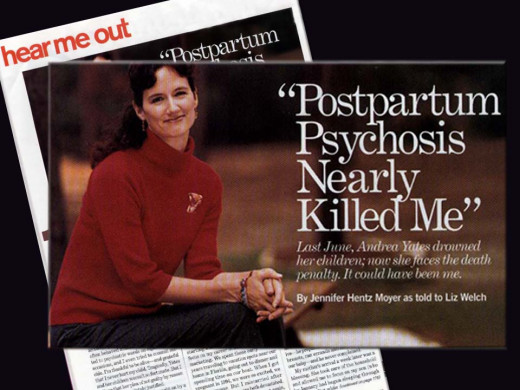
Postpartum Psychosis (PPP)
If your depression has reached this level, it is critically important to seek help as soon as you recognize the signs. This level of depression can, in fact, become more dangerous and has been known to end with tragic stories which we've all heard in the news a time or two. If you recognize these symptoms in yourself or somebody you know, please strongly consider seeking medical attention. Symptoms include:
Paranoia
Hallucinations/delusions
Confusion/disorientation
Attempts to harm yourself and your baby
Although Postpartum Psychosis is much more serious and dangerous, it is important to remember that it is still unintentional. No brand new mother plans to become depressed. We all expect the birth of our child to be the "best time of our life." Knowing that we aren't feeling as overjoyed as we expected ourselves to feel can be enough reason to sink deeper into guilt and depression.

Physical Symptoms
The stress of any mental disorder can often result in manifesting physical ailments as well. If you're experiencing one or more of the PPMD's listed above, you may also recognize some of the following physical symptoms:
Increased heart rate
Tight chest & throat
Loss of appetite or increased appetite
Heavy breathing
Grinding teeth
Back aches
Nausea
Migraines
Stiff neck
Usually, the same treatment that goes into aiding PPMD will also help alleviate these physical signs.
What Do You Think?
Some people believe postpartum depression is a cop-out for women to not feel expected to be the mothers they know they should be. What do you think?

If you feel that you can relate to the signs and symptoms of this article in any way, please speak to your gynecologist or family physician. It is important to get help, and nobody should feel embarrassed or scared for what they're going through. It is estimated that 80% of mothers experience some sort of postpartum blues. So remember, you are not alone and more people understand what you are going through than you may think.
Even though one of the common parts of depression is feeling stuck, you don't have to be. Just like any other challenge in life, admitting you have a problem and seeking help is the first step! Everyone deserves a light at the end of their tunnel. You don't have to be silent anymore, and you shouldn't be. Make the choice, today, to get help for working towards conquering your emotions.
A Mother Speaks Openly About Her Postpartum Depression
Who Is Most Likely To Get PPMD?
Women with personal or family histories of PPMD
|
Women who had experience with any PPMD after previous births
|
Single women, women in unsupportive relationships, and women with multiple children
|
Note: While the majority of women who suffer from PPMD fall under one of the above categories, there are plenty who do not fall under any of them but still suffer.
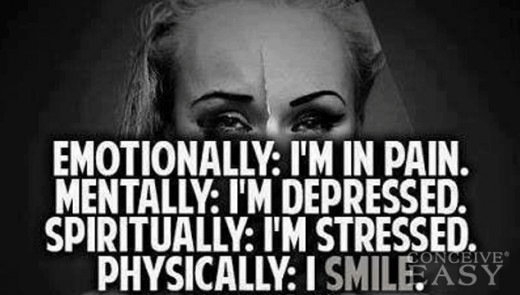
In-home Remedies
No disorder should go untreated, professionally. It is important to be seen by your doctor. However, there are some homeopathic remedies which, along with physicians orders, could help ease the stress and anxiety of PPMD:
1. Make Time For Yourself.
It is imperative that every mother has time to breathe and rest, for herself. As new moms, it is normal to feel that the weight of responsibility rests solely on our shoulders. That simply is not true, though. Mothers need help, too, and it is okay to admit to that. Accept help any chance that you can get. Let your spouse make dinner or fold laundry. Allow your mother-in-law to scrub your bathroom. Hire a babysitter for a date night, or even just to give you a chance to catch up on some sleep! Which leads us to #2.
2. Sleep, Sleep, Sleep.
If you're limited to helpful resources, remember to relax when the baby relaxes. "Sleep when the baby sleeps" is not just a senseless saying that has gone around for years; it is true! Don't always jump onto your next chore as soon as your baby has fallen asleep. Taking a nap is not a selfish choice, it is a necessary one. The more refreshed you keep your mind and body, the less stressed you will feel. Even one nap a day at the early stages of having a baby can help prevent PPMD from getting any worse.
3. Remember To Exercise.
Nobody expects you to fit into a bikini after the baby is born, but exercise isn't meant just for losing that baby weight. More importantly, it's meant for a healthier lifestyle and mindset. Taking the baby for a walk in the stroller once a day can make all the difference in the world. Getting your heart pumping, your blood flowing, and smelling the fresh air are all healthy stimulants for the brain (which is where PPMD has its largest impact). If you feel a wave of anxiety or depression coming over you, take the baby for a walk, do some lunges and crunches, or turn on some fun music and dance!
Most gyms offer daycare centers. If you can afford it, join a gym! Take some Zumba or spin classes! Many towns also have mommy groups who meet at parks and/or malls to walk together. Do a quick google search for mommy groups near you!
4. Change Your Diet.
Most importantly, avoid too much caffeine and alcohol. Both stimulate the brain in negative ways and will only make things worse. Even if, at the time of consumption, it feels like a temporary fix, the long-term effects of alcohol, especially, will cause a dissension of stable mentality. If you feel like you can't live without your coffee in the morning, try not to drink sodas or teas throughout the rest of the day.
Try to stay away from processed foods, especially fast-foods. The more home-grown foods you can ingest, the less chemicals your body is consuming. Remember, your body is already chemically imbalanced and that is what you're trying to fix! Decrease your fatty foods and cholesterol, and increase your fruits and vegetables! Vibrant colored plant-foods are full of all the essential vitamins and fiber necessary to improve mental functionality. Protein is an excellent food for brain activity!
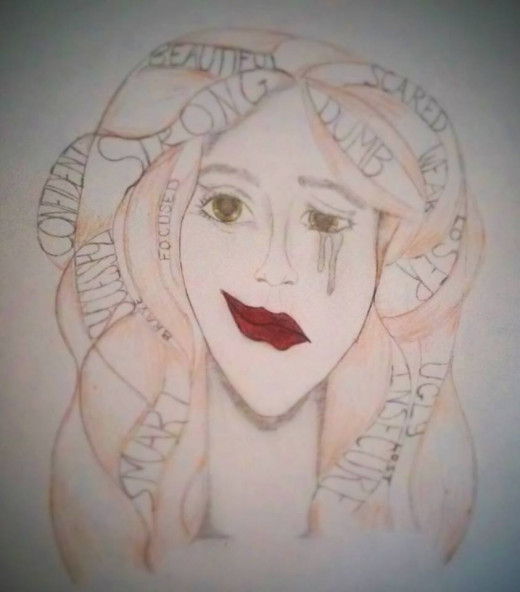
5. Set Realistic Goals.
As mothers, one of our biggest mistakes is thinking we can and should do it ALL--within one day. Instead, each day you should set goals that you know are realistic and possible to accomplish. Do not make a huge list; 2 or 3 things "to do" are plenty enough in one day. After all, the top priorities of each day's list should always be "time for yourself" and "time spent enjoying your baby" (not including feeding them and changing their diapers). No mother should feel guilty for spending at least an hour a day, simply cuddling and playing with their baby. More than maintaining a clean home and cooking meals, your first job is always making time for your child. In order to do that, you must also remember to make that time for yourself so that you are mentally refreshed for baby time.
6. Keep Yourself Social.
One of the hardest challenges for many moms suffering PPMD is to stay social with friends and family. It is easier to isolate ourselves, and stay behind closed doors where we can suffer in silence. However, it is not healthy. Forcing ourselves to get out and socialize are one of the best things we can do for ourselves. You don't have to talk about how you're feeling with everyone you come in contact with, but having a few reliable friends to confide in can make all the difference in the world. Once again, joining a mommy club could prove to be extremely beneficial!
Bake desserts for your neighbors, volunteer with your older children, teach classes at your local community center. Sometimes, thinking outside of your own box and reaching out to help others can be the best medicine for depression. Remembering you're not alone in this world is very powerful.
7. Keep Yourself Spiritual.
Whether you believe in God or not, spirituality is still a key ingredient to keeping your life in balance. To be spiritual simply means to relate to the human spirit (or soul) as opposed to material or physical things. In other words, take some time to dig deep into discovering your own thoughts and emotions, rather than spending every minute just going through the motions of every-day life.
Keep a journal. If you believe in prayer, make it your prayer journal; there is power in prayer. If you don't, then write in your journal about what you are experiencing and how it makes you feel. Expressing your feelings, even to yourself, can be empowering. Having it in writing allows you the opportunity to look back and reflect on areas you've improved, and perhaps other areas where you still need help.
Meditate -- Breath in deeply and as you breathe out, tell yourself that you are a strong woman. On the second breath, tell yourself you are a good mother, and on the third tell yourself you love yourself; repeat at least 5 times, daily.
Do daily inspirational devotions. Do yoga. Drink some decaffeinated tea while you spend an hour in silence, reflecting on your day. Read. Avoid television, especially the news and depressing movies/shows.
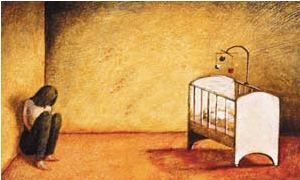
Postpartum Mood Disorders do not have to consume your life. At the time that you're struggling, it may feel like life as you once knew it is gone forever. I am living proof that is not true. You can and will find happiness again, and it's all within your own power. The first step is admitting to your struggles and seeking help, even if it's just to find someone to talk to.
If you are willing to reach out for help then you are not only helping yourself, but your loved ones around you; including and especially your brand new, beautiful baby. It is possible to find joy in their presence, and taking that first necessary step today will lead you in the right direction.


